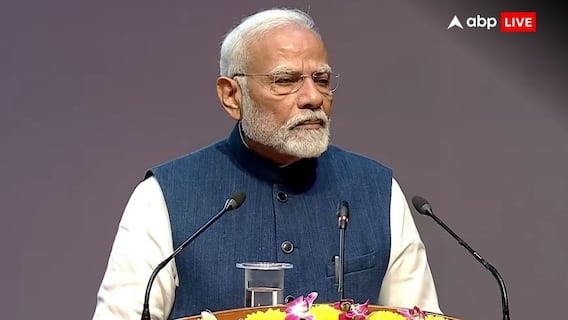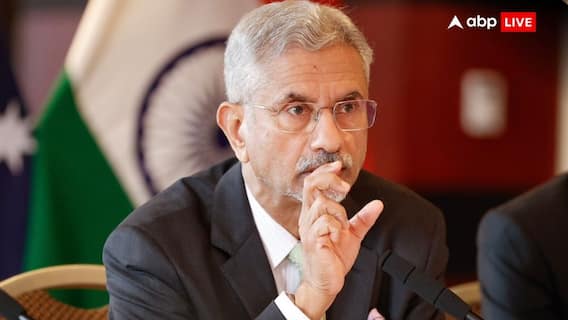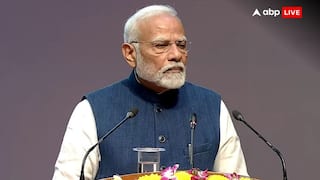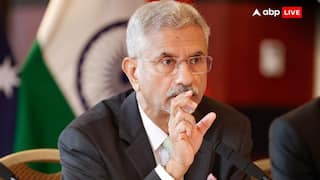Is Dollar Really Losing Dominance In Global Trade? Latest Trends Offer Mixed Signals
Several factors, including the rise of China as an economic powerhouse, increasing use of alternative currencies for trade settlement, and growing concerns over the stability of the dollar, show greenback is losing dominance

The US dollar has long been the dominant currency in global trade, accounting for nearly 60 per cent of all foreign exchange (Forex) reserves and more than 80 per cent of global foreign exchange trading. However, in recent years, the dominance of the US dollar has been gradually declining. This trend is driven by several factors, including the rise of China as an economic powerhouse, the increasing use of alternative currencies for trade settlement, and the growing concerns over the stability of the US dollar.
Check the Latest Trends
One of the key factors contributing to the decline of the dollar's dominance in global trade is the rise of China as an economic superpower. China is now the world's second-largest economy and the largest trading nation. As China's economic clout has grown, it has sought to reduce its dependence on the dollar in trade and investment. In recent years, China has been working to internationalise its currency, the renminbi (RMB), and promote its use in international trade and investment.
China has taken several steps to promote the use of the RMB in international trade. In 2009, China launched the RMB Cross-Border Trade Settlement Pilot Scheme, which allowed companies to settle trades in RMB instead of dollars. Since then, China has expanded the use of the RMB in trade settlement by establishing currency swap agreements with more than 30 countries and regions. China has also been promoting the use of the RMB in the Belt and Road Initiative, a massive infrastructure project that spans more than 60 countries and regions.
Another factor contributing to the decline of the dollar's dominance in global trade is the increasing use of alternative currencies for trade settlement. In recent years, several countries have begun to use their own currencies or other currencies besides the dollar for trade settlement. Russia and China announced that they would begin to use their own currencies for bilateral trade instead of the dollar. This move was seen as a response to US sanctions on Russia and the trade war between the US and China. In a statement, Russian President Vladimir Putin told his Chinese counterpart Xi Jinping that Moscow is ready to increase settlements in yuan in its foreign trade.
Fareed Zakaria, veteran US journalist and geopolitical commentator, recently said that Russia and China are trying to dent the dollar's dominance as the anchor of the international financial system, and if that happens, "America will face a reckoning like none before". Fareed gave his take on how the unprecedented sanctions on Russia are driving other countries to find ways to reduce their vulnerability to America's financial reach. In his weekly show on CNN, Zakaria asked, "The world's second-largest economy and its largest energy exporter are actively trying to dent the dollar’s dominance as the anchor of the international financial system. Will they succeed?"
Rupee’s Growing Clout
In a bid to make the rupee a global currency, Ministry of External Affairs last week announced that trade between India and Malaysia can now be settled in Indian Rupee (INR) in addition to the current modes of settlement in other currencies. This comes a day after the ministry of commerce launched the Foreign Trade Policy (FTP) 2023.
Earlier, Reserve Bank of India (RBI) Governor Shaktikanta Das had said the government and the banking regulator are in talks with several South Asian countries to have cross-border trade in Indian rupee. India's rupee trade settlement mechanism, a means of using rupees instead of dollars and other big currencies for global transactions, is attracting interest from more countries. Tajikistan, Cuba, Luxembourg, and Sudan have begun talking to India about using the mechanism. It has already been used by Russia following the imposition of sanctions on Moscow over the Ukraine war. The RBI set up the mechanism in July 2022. The Centre is now looking to bring countries that are short of dollars into the mechanism.
Dr Vinay K Srivastava, associate professor, Institute of Technology & Science, Ghaziabad, has shared his views on the subject. Srivastava told ABP Live that the US dollar was considered as the linchpin of the international monetary system in the Bretton Woods Conference of 1944. It was the only currency to be fully convertible into gold and each currency was pegged vis-a-vis the dollar, he mentioned.
"Though it ended with the end of the Bretton Woods system, despite this, the dollar has been the dominant currency in the Forex market and ruled in multinational trade. It has been designated as reserve currencies and countries have been maintaining their forex reserve principally in the form of the US dollars. However, the ongoing Russia-Ukraine war and other economic factors such as rising inflation, economic growth, etc, are posing a threat to the dollar. Experts are of the view that the dollar will stay strong in 2023, and after that it may begin to lose its tint due to the possibility of a weakening US economy. Moreover, a weakening dollar could bring new risks for inflation. Therefore, a weakening dollar will pave the way for a new global currency regime. Accordingly, a number of countries have started looking for an alternative to the US dollar. India has already launched e-rupee. It is in the process of internationalisation. The new FTP also seeks internationalisation of trade in e-rupee."
Advantages of Alternative Currencies
Use of alternative currencies for trade settlement has several advantages. First, it reduces the reliance on the US dollar, which can be beneficial for countries that are subject to US sanctions or political pressure. Second, it can reduce transaction costs and currency risk for companies that trade with multiple countries. Finally, it can promote economic and financial integration among countries that share a common currency or currency bloc.
The growing concerns over the stability of the US dollar are also contributing to the decline of its dominance in global trade. The US dollar is the world's reserve currency, which means that many countries hold US dollars in their foreign exchange reserves. However, in recent years, there have been concerns about the long-term stability of the US dollar. The US has a large and growing national debt, and there are concerns that the US government may not be able to service its debt in the long term.
There are also concerns about the US government's ability to maintain the value of the dollar. The Fed has been printing money at an unprecedented rate in response to the pandemic. This has led to concerns about inflation and the long-term value of the dollar. Many countries are now diversifying their foreign exchange reserves away from the dollar and into other currencies or assets, such as gold or cryptocurrencies.
In conclusion, the dominance of the US dollar in global trade is diminishing, driven by several factors, including the rise of China, the increasing use of alternative currencies for trade settlement, and the growing concerns over the stability of the US dollar. While the decline of the dollar's dominance may be gradual, it is likely to continue in the years ahead. This trend has important implications for the global economy and the future.
Dollar Still Rules
However, in February Reuters published an article saying reports of dollar’s demise are greatly exaggerated. Citing Bank for International Settlements’ report, the news agency pointed out that the US dollar was on one side of 88 per cent of all foreign exchange trades in April last year. The Fed estimates that between 1999 and 2019 the dollar accounted for 96 per cent of trade invoicing in the Americas, 74 per cent in the Asia-Pacific region, and 79 per cent in the rest of the world.
Rupee Show
The Indian rupee (INR) has seen a mixed performance against other major currencies in recent years. In 2020, the pandemic caused a global economic downturn, and the rupee depreciated significantly against the US dollar (USD). On October 19, 2022, the rupee dropped as much as 71 paise to hit a low of 83 against the US dollar, following consistent strengthening of the greenback. However, the INR recovered somewhat later.
Overall, the performance of the rupee against other currencies is influenced by a variety of factors, including global economic conditions, domestic economic policy, and geopolitical developments. In the short term, the INR is likely to continue to be affected by ongoing uncertainties, mostly related to the global economic conditions. However, in the long term, the performance of the rupee will depend on India's ability to maintain stable economic growth and pursue sound economic policies.
IPL Auction 2025
Top Headlines
Trending News








































